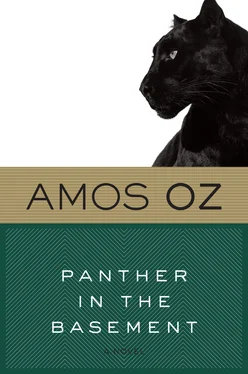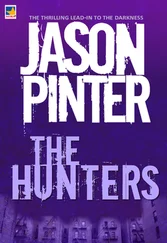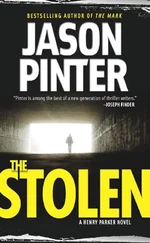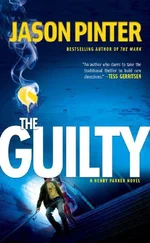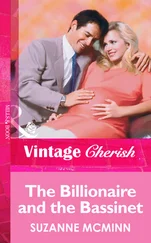Sergeant Dunlop talked about Saul and David and Michal and Jonathan and Absalom and Joab in tones of faint wonderment, as if they, too, were youngsters from the Hebrew Underground with whom he had once sat in the Orient Palace, learning Hebrew from them and teaching them a little Philistine in return. He felt affection and compassion for Saul and Jonathan, but he was fondest of all of Saul's daughter Michal, who never had a child, and he also liked Paltiel, son of Laish, who wept for her until Avner banished him and so, pursuing, yet not pursuing the wife who was no longer his, he, too, was banished from the stage and disappeared from the chronicle.
But apart from Paltiel, I thought, almost all of them were traitors: Jonathan and Michal betrayed their father, Saul; Joab and the other sons of Zeruiah, the fair Absalom, Amnon, Adonijah, son of Hagith, were all traitors, and the worst traitor of all was King David himself, David about whom we sing the song, "David King of Israel lives, lives, lives on still." They all seemed faintly comical in Sergeant Dunlop's version: miserable fusspots who seemed rather like the CID officers that he told me snippets of gossip about: one was jealous, another obsequious, a third suspicious. In his stories they all seemed trapped in a surreal web of infatuations, desires, jealousies, and intrigues, and the pursuit of power and vengeance. (Here they are again, those thirsty men, those parched leopards whose thirst no water in the world can quench, ever. Pursuing and pursued. Blind men, digging a pit and falling into it.)
I looked in vain for a crushing reply that would rescue the honor of King David and Mr. Gihon — and in fact the honor of our whole people. I knew that it was my duty in these conversations to defend something or other from what Sergeant Dunlop was thinking and saying. But what was it I was supposed to defend? I did not know then (and I don't fully know today). And yet my heart went out to them all, to Saul, abandoned and deceived, tried by Samuel for betrayal and condemned to paying with his crown and his life for not having a heart of stone. To Michal and Jonathan, whose souls were so bound to the soul of the enemy of their family that they did not hesitate to betray their father and his throne and to follow the leopard. I even felt kindly towards David, the traitor-king who betrayed all those who loved him and was betrayed by almost all of them in turn.
Why couldn't we all get together just once in the back room of the Orient Palace, Sergeant Dunlop, Mother, Father, Ben Gurion, Ben Hur, Yardena, the Grand Mufti Haj Amin, my teacher Mr. Gihon, the leaders of the Underground, Mr. Lazarus, and the High Commissioner, all of us, even Chita and his mother and his two alternate fathers, and chat for an hour or two, and understand each other at last, make some concessions, be reconciled, and forgive one another? Why couldn't we all go down to the bank of the stream together to see if the blue shutter had been carried back yet?
"That is enough for today," Sergeant Dunlop would cut through my dreams. "Let us part now and return tomorrow: in the sweat of our brow we shall increase knowledge; oh, that we might not also increase sorrow."
Whereupon we would part, without shaking hands, because he had understood of his own accord that I was forbidden to shake hands with the foreign oppressor. So we made do with a nod of the head on meeting and parting.
And what was the secret information that I managed to get out of Sergeant Dunlop as a result of our relationship?
Not much; just a tidbit here and there.
Something about the sleeping arrangements in the fortified police station.
Something (quite important actually) about the night duty rosters.
Personal relations among the officers and among their wives. Some details about barracks routine.
And something else that cannot perhaps be seen as the result of my spying, but which I shall mention here anyway. On one occasion Sergeant Dunlop said that in his opinion after the end of the British Mandate a Hebrew State would be set up here and the words of the Prophets would come true exactly as recorded in the Bible, and yet he felt sorry for the peoples of Canaan, by which he meant the local Arabs, and particularly for the villagers. He believed that, after the British army had left, the Jews would arise and defeat their enemies, the stone-built villages would be destroyed, the fields and gardens would be turned into haunts of jackals and foxes, the wells would dry up, and the peasants and farmers and olive pickers, the dressers of sycamore trees and shepherds and drivers of she-asses would all be driven out into the wilderness. Perhaps it was the Creator's decree that they should become a persecuted people, instead of the Jews, who were returning at long last to their inheritance. "Wonderful are the ways of the Lord," Sergeant Dunlop said sadly and with an air of faint astonishment, as though he had suddenly reached a conclusion that had been long awaiting him: "the one he loves he chastizes, and the one he would uproot he loves."
Arumor spread around the neighborhood: the British were about to impose a general, day and night, curfew and to conduct extensive house-to-house searches for Underground fighters and caches of arms.
When Father came home from work that afternoon he called the three of us to a short meeting in the kitchen. There was something we had to discuss seriously and candidly. He closed the door and the window, sat down in his well-pressed khaki clothes with their wide pockets, and placed a small package wrapped in brown paper on the table in front of him. There was something inside it, he said, or, strictly speaking, some things, that we had been asked to hide until the troubles were over. It was certainly reasonable to suppose that the searches would not pass us by, but it was believed that it was easier to find a hiding place for this thing, or these things, in our apartment. And we were definitely prepared to stand the test.
I thought: He's right not to tell us what's in the package, so as not to alarm Mother. (What if he doesn't know himself? That's not possible: Father does know.) As for me, I immediately assumed that the package contained dynamite or TNT or nitroglycerine or something much stronger, some new-found, revolutionary explosive substance the like of which had never been seen before: some doomsday compound that we had developed here in the secret Underground laboratories. A spoonful of it could blow up half the city.
How about me?
Half a teaspoonful would be enough for our rocket that would threaten the King's palace in London. This was the moment of opportunity I had been waiting for. I must at all costs secretly extract from the package the quantity I needed.
If I succeeded, the FOD would get down on its knees to plead with me to forgive them and come back.
And I would forgive them. Contemptuously. And agree to come back. But I would have to secure a few serious concessions: to reorganize the command from scratch, put Ben Hur in his place, abolish the Department of Internal Security and Interrogation, and find a way of preventing arbitrary decisions and protect fighters from the dangers of internal malice.
Father said:
"If and when we are searched, it is essential that you two should know what it is about, for two reasons: first, there is not much room in here and one of you might find it by accident and thus cause an incident. Second, if they do find the hiding place, they may question us separately, and I want us all to have an identical explanation. Not contradict each other. (The explanation that Father asked us to memorize had to do with Professor Schlossberg, who had lived alone on the floor above us and died the previous winter. He left Father fifty or sixty books in his will. Our unanimous reply to questioning was to be that the brown paper package came into our apartment with the late professor's books.)
Читать дальше
